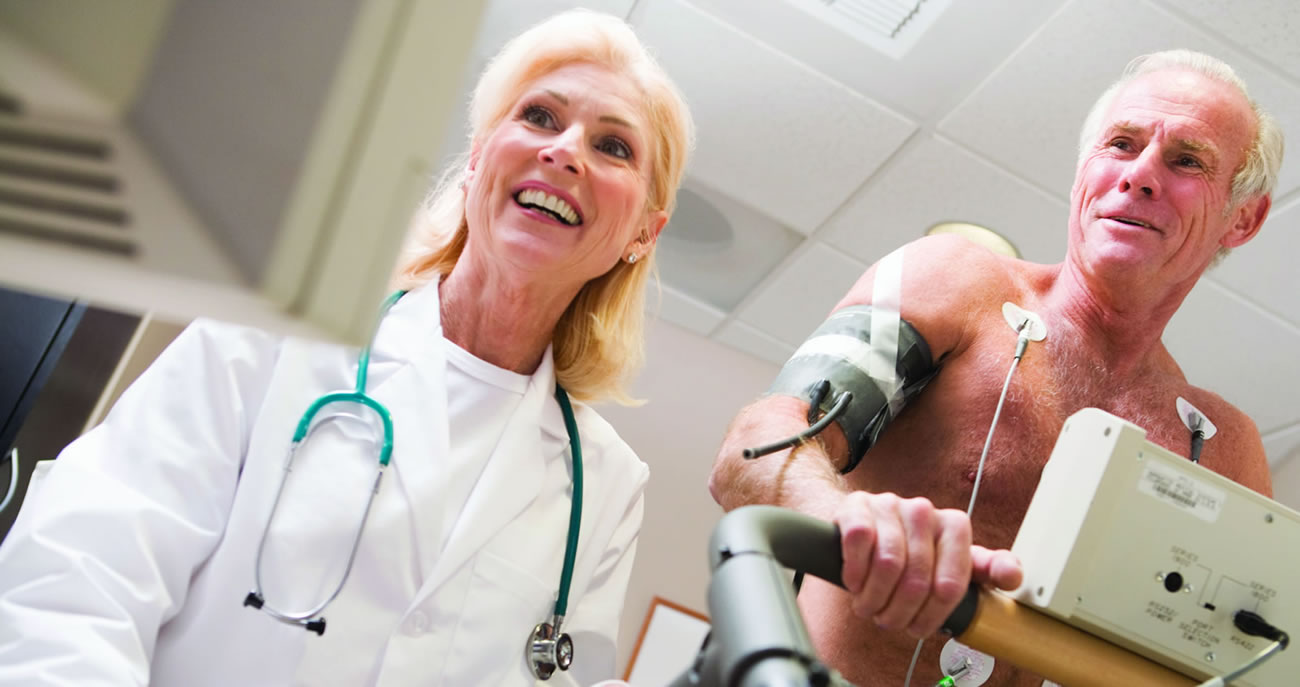Healthy living – exercise after a heart attack

In recognition of American Heart Month in February, Lake Regional Health System is providing education to Lake Sun readers on various heart health topics.
A heart attack can be strong motivation to start living healthier. But fear can get in the way of healthy activity.
“It’s common for people who have survived a heart attack to be afraid to exercise,” said Jennifer Newman, director of Lake Regional Cardiopulmonary Rehabilitation. “Their concern is understandable — it is possible to do too much too soon. But we don’t want people to think the safe route is to do nothing. Regular exercise is important for preventing heart problems, and it’s important for helping people who have survived a heart attack recover.”
Benefits of Exercise
The heart is a muscle, and like other muscles, it benefits from exercise.
“A heart attack can weaken the heart, so it’s important to get it back into shape,” Newman said. “Exercise that raises your heart rate to working level can help to build stronger muscle and improve your overall stamina and strength. That’s what you need to return to former activities, including work and hobbies.”
Exercise also can improve many conditions that might have contributed to the heart attack.
“If a heart attack sufferer also is overweight or has other conditions — such as diabetes — exercise can help reduce the risk of a repeat event,” Newman said.
Keeping the Heart Safe
Heart patients need medical oversight of their exercise. Cardiac rehabilitation programs are designed to help patients exercise safely while learning about and maintaining a healthy lifestyle.
“In cardiac rehabilitation, patients receive a personalized exercise program, reviewed by their doctor,” Newman said. “And cardiac rehab patients have the safety net of having a team of nurses by their side during exercise. We keep patients on a continuous monitor to assess for potentially dangerous changes in heart rhythm or rate. That goes a long way in helping people feel comfortable exerting themselves.”
General Tips
Whether you are recovering from a heart attack or hoping to avoid heart disease, Newman provides the following exercise tips.
1. Check with your doctor before starting an exercise routine. Ask if you should avoid any activities and how to know if you are doing too much or too little.
2. Find exercise that keeps you motivated. Exercise needs to be routine, which means you need to stick with it. You might like the gym, or you might prefer walking, bicycling or swimming. Try different things to see what works best for you.
3. Move more throughout the day. Sitting for long periods is associated with higher risks of serious medical problems, so choose to be active throughout the day. Take the stairs instead of the elevator. Park on the far side of the parking lot. And plan activities to get you out of your chair and on your feet.








Recent Comments